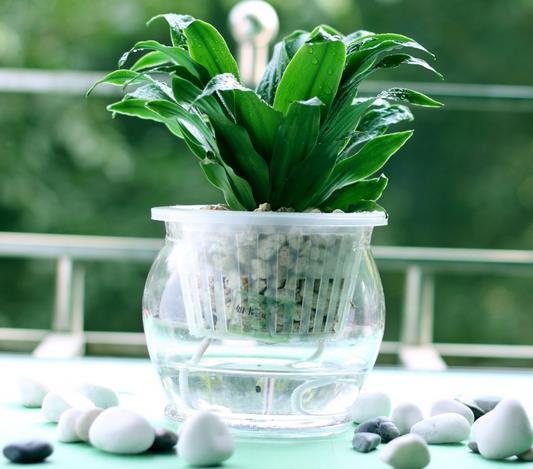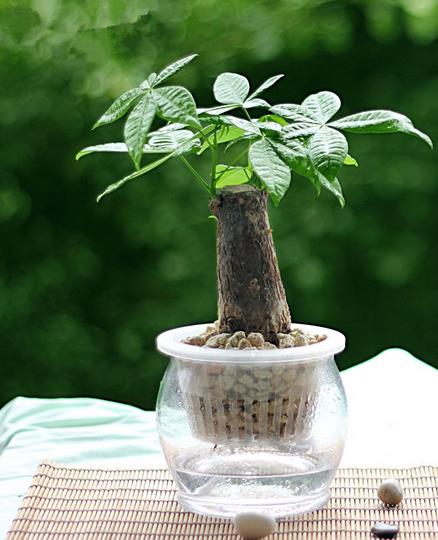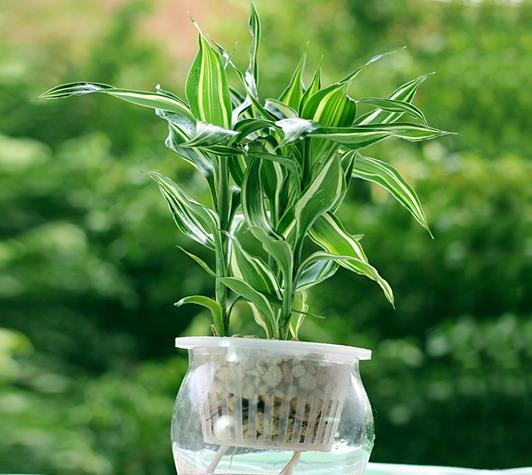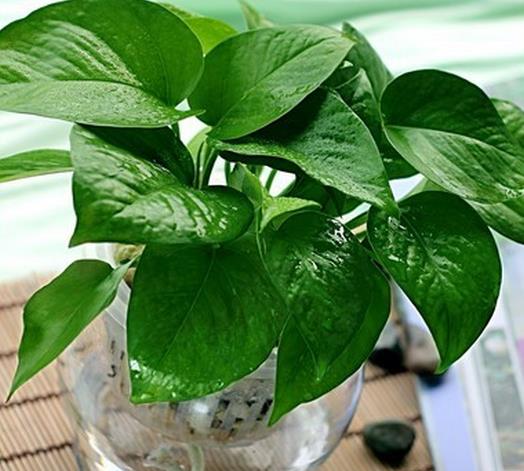Why is it necessary to use humidifiers for indoor moisturizing? plant moisturizing is more environmentally friendly
Hydroponic plants refer to those plants that can be kept indoors without soil and with special water. Generally, transparent containers (vases, plastic bottles, etc.) are filled with water, and plant roots are put into water. After taking root, you can see indoor potted plants with roots.

I. Classification of hydroponic plants
There are two types of aquatic plants: one is aquatic flowers, such as lotus and water lilies that we are familiar with, and the other is flowers that can be raised with water, which generally grow in soil or cultivation media, such as daffodils and hyacinths. Because the indoor light is not enough, it is more suitable to cultivate the latter kind. In addition, they have low requirements for nutrients and can basically grow in tap water without adding nutrient solution.
II. Advantages of hydroponic plants
1. Because water can evaporate freely, in the same environment, plants cultivated in potted soil play a more obvious role in regulating air humidity.
2. Hydroponic plants can omit the management of basin soil, clean and hygienic, and easy to maintain.
3. If some plants whose roots can be exposed to light are selected and equipped with suitable containers, the whole plant can be ornamental, fresh and elegant, and has higher ornamental value.

Introduction of hydroponic plants
1. Rich bamboo
Liliaceae is an evergreen upright shrub, which is very suitable for indoor hydroponic flowers. The leaves of Fugui bamboo are green, the stems are straight and round like bamboo. Leaves ovate, apex pointed, petiole base clasping. It is a very shade-tolerant plant. It still grows well and is tall and strong under weak light conditions. Can be placed indoors for a long time to watch the leaves, do not need special maintenance, as long as there is enough water, it can grow vigorously. In hydroponic culture, the stem of Fugui bamboo is cut into small segments of more than 20 centimeters as cuttings in water, as long as the cuttings can be soaked in water.

two。 Hanging orchid
Perennial evergreen persistent-rooted herbaceous flowers of the family Liliaceae having clusters of leaves linear with longitudinal yellow-and-white stripes on the margin or in the middle. In summer and autumn, slender, flexible and drooping stolons are drawn from the leaves, tender leaves and aerial roots germinate at the top or nodes, and white flowers bloom. The orchid can be raised in indoor water, which can not only purify the air, but also has the advantages of beautiful appearance and simple management. Dig out the potted orchid, go to the root soil, cut off the old root and rotten root, leave the fibrous root, put it in a container bottle, fill the bottle with water and flower nutrient solution, and let the root of the orchid grow in water.
3. Green pineapple
Araceae is a plant of the genus Colocasia, which belongs to climbing vines and foliage flowers. Sexual preference for warm, humid environment, rattan up to several meters long, internodes have air root, leaves will grow bigger and bigger, leaves each other, evergreen. The stem of the radish is soft and the leaves are delicate. Aquaculture is very simple, make sure to change the water every 2 to 3 days, with simple nutrients. Green pineapple has a high ornamental value, vine stem naturally drooping, not only can purify the air, but also make full use of the space, for the rigid cabinet to add lively lines, lively color.

4. Ivy
Araliaceae, ivy genus, is the most ideal indoor and outdoor vertical greening varieties, evergreen vines, thin and soft branches, aerial roots, can climb on other objects. The leaves are alternate, the leaves are triangular-ovate, and the demand for potted plants is increasing day by day. It is a typical negative plant, which can grow in full light, grow well in warm and humid climate, and is not resistant to cold. Water is easy to raise and has strong vitality.
5. Asparagus asparagus
Perennial evergreen herbaceous flowers of the genus Liliaceae. The stem is thin and weak, the branch is slender and leafy, and the level is developed. The flowers are small and white. Berries globose, black. After the fruit is ripe, it shows a little red in the thick green cluster, elegant and lovely. Plant strong negative tolerance, placed at the head of the bed, table case, elegant and generous, is a good indoor flower. Asparagus is also an ideal foil material for cut flowers. In recent years, water-raised asparagus has been successfully developed, which is even more elegant in the room.
The above five kinds of plants are suitable for water cultivation. You might as well give it a try.
Related
- Wuhan Hospital Iron Tree Blooming Result Was Instantly Frightened by the Gardener Master
- Which variety of camellia is the most fragrant and best? Which one do you like best?
- What is the small blue coat, the breeding methods and matters needing attention of the succulent plant
- Dormancy time and maintenance management of succulent plants during dormancy
- Minas succulent how to raise, Minas succulent plant pictures
- What are the varieties of winter succulent plants
- How to raise succulent plants in twelve rolls? let's take a look at some experience of breeding twelve rolls.
- Attention should be paid to water control for succulent plants during dormant period (winter and summer)
- Watering experience of twelve rolls of succulent plants
- Techniques for fertilizing succulent plants. An article will let you know how to fertilize succulent plants.



